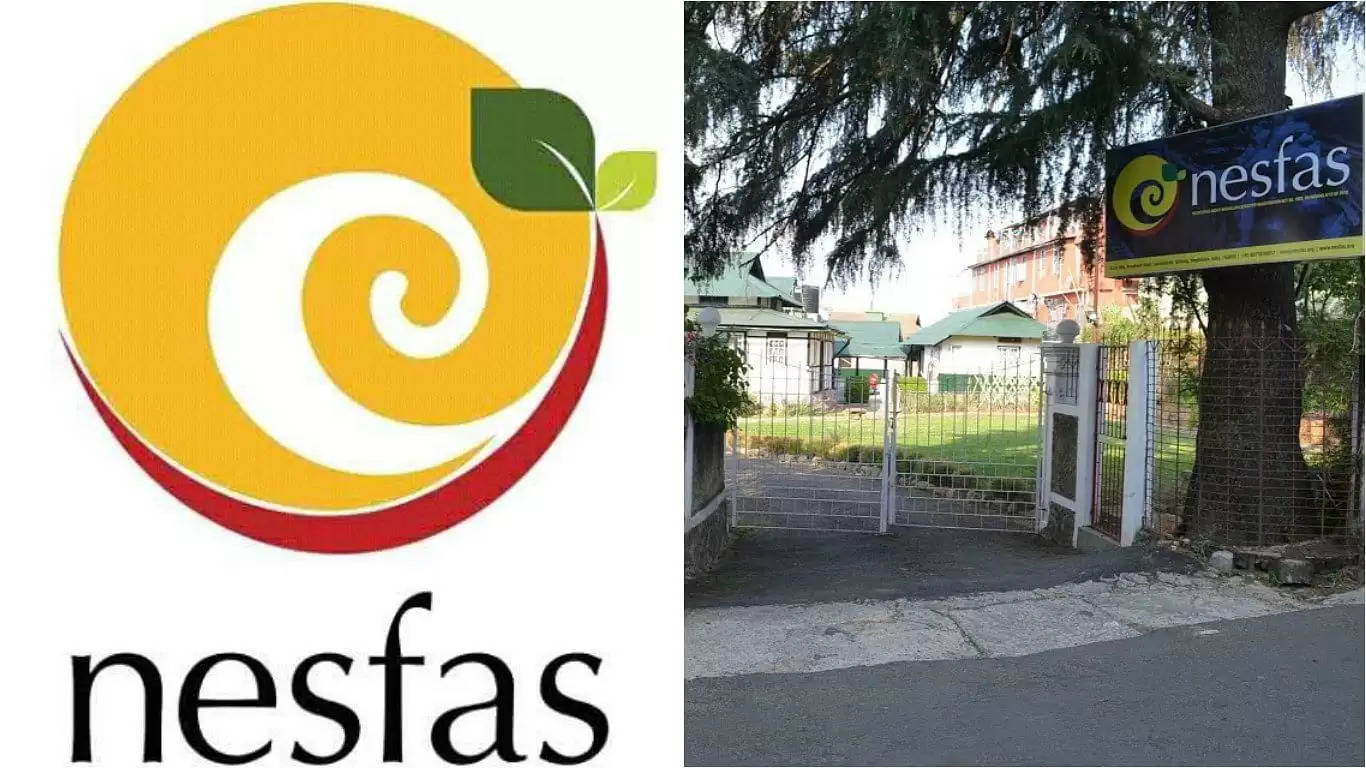Countering fast food fad by traditional slow food, NESFAS presents a new way of life!

Tradition and an Organizational Talent
Founded in 2012, the North East Slow Food and Agrobiodiversity Society or NESFAS is an organization based in Shillong that looks at food and agricultural practices in a new way – by going back to the old ways. Traditional methods of agriculture and farming are now dying practices as much of the knowledge behind them is lost. In addition to this, NESFAS also looks at how traditional practices of weaving and sericulture can be brought back into the limelight.
The main purpose of the organization, as pointed by senior official Xavier Sunn, is to go back the traditional roots and bring about a greater understanding of culture and practices of the bygone days which were more sustainable and environment friendly. They aim to do this through the use of food.
As we have most probably read in our geography books about the Green Revolution of the 1960's and how the use of fertilizers and modified seeds for better crop output was brought around the word. Fast forward to the 21st century, there is a greater awareness about the serious problems in the food production process. We have become more sceptical about where our food comes from, how it is grown and what materials were used in its production. And through popular media we come to know of the serious problems that are present in the food production process.
It is along these lines that NESFAS come along and tries to bring about a change in the process by going back to the traditional practices such as the use of compost and vermiculture. These practices which have been in use since the days of the forefathers and mothers, have become lost in the larger narrative of DDT and chemical fertilizers. As these have to been known to cause several health issues, NESFAS is attempting to bring back organic farming which leads to healthier produce and adds to better food for us.
Another main motive of the organization is to bring about an awareness of practices with regard to weaving and sericulture from various rural areas of the region back into the mainstream. This is a way in which the traditional arts get preserved and a way in which they can provide employment to the youths of the region. This is another major issue that the organization wishes to attend to. As the number of youths is ever growing, working with other initiatives to bring about cooks from the lesser known areas of the region to help in the setting up of the organizations trademark Mei Ram-ew cafes.
Good, Clean, Fair.
This is the motto of NESFAS. To provide good, clean and fair food across the region. Its an uphill battle for the organization which aims to fight the giants of fast food. Here the term fast food is in relation to crops which are grown with the help of fertilizers and other harmful substances. As the organization works with various international partners such as Slow Food International, the former has adopted the motto of the latter when it comes to its activities.
The aim is to provide GOOD – quality, flavoursome and healthy food, CLEAN – production that does not harm the environment, FAIR- accessible prices for consumers and fair conditions and pay for producers, across the region. NESFAS works along other organizations such as Indigenous Partnership for Agrobiodiversity & Food Sovereignty (IP), Rome. With such tie ups, the organization strives to make its aims a reality.
The organization conducts various activities such Mei Ram-ew Festival, which are held in villages to celebrate the unique food and various cuisines that are specific to those villages. Through such initiatives fast disappearing food items are brought to mainstream and the various practices are highlighted in the process.
Through such programmes the process of documentation of these disappearing tradition are documented for future generations. Not only documentation but preservation also takes place in dialogue and discourse with the locals and the older generations. An example of this as given by Mr Sunn, is that of the weaving practices that are indigenous the Shella area in the South of Meghalaya. With the help of the Sericulture Department, Government of Meghalaya, NESFAS was able to revive this old tradition and in the process provide employment to the youths of the area as well.
A blend of traditional practices woven into the fabric of an organization such as this will surely help the good practices of the past come back or at least cometo the mainstream. The traditional practices which were much more efficient, eco-friendly and not to mention healthy, the team at NESFAS aims to revive such methods. Efforts such as these becomes a celebration of multiplicity and the great many differences and uniqueness of each village and state in general. Kudos NESFAS!
By Julian Jyrwa for TNT- The Northeast Today News
The present article is part of an internship programme by Julian Jyrwa of Christ University, Bengaluru
Image Courtesy:
Picture 1 : NESFAS logo (Source : Facebook)
Picture 2 : The NESFAS office (Source: Google plus)

















